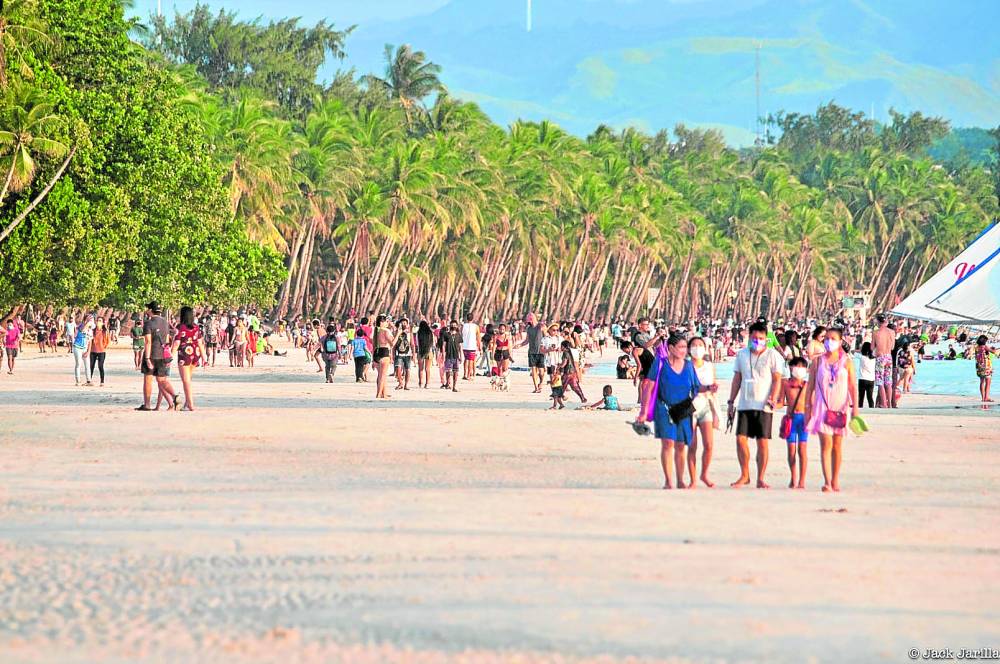The slow return of Chinese tourists has been holding back travel recovery in the Philippines, Bank of America (BofA) said in a new report that highlighted the “uneven” recovery in Asia tourism.
As the region’s tourism sector enters the “last” leg of recovery from the pandemic’s onslaught, BofA said the Philippines, China, Hong Kong and Taiwan were the “laggards” in Asia as tourist arrivals in these destinations have yet to reach prepandemic levels.
In the Philippines, BofA noted that foreign visitor arrivals were still 76 percent of prepandemic levels as of February this year, albeit much better than Hong Kong’s 73.7 percent and Taiwan’s January 2024 figure of 69.6 percent.
Outlier
Among the laggards, BofA said China was an “outlier” after it reopened its economy much later than other Asian destinations. Data compiled by the bank showed foreign tourist arrivals in China were 36.3 percent below prepandemic level as of December 2023.
In turn, the later reopening of China’s economy weighed on tourism recovery in countries that heavily depend on Chinese holidaymakers, such as the Philippines and Hong Kong.
Data compiled by BofA showed Chinese arrivals are only tracking at 20 to 30 percent of prepandemic levels in the Philippines, below trends elsewhere in the region. And the recovery is unlikely to speed up anytime soon, with BofA noting the “changing preferences” of Chinese consumers.
“The typical Chinese traveler these days is increasingly interested in exploring domestic cities that offer unique cultural experiences. This has also slowed their return to international destinations,” BofA said.
“The return of Chinese travelers might be a gradual process,” it added.
On the flip side, tourism is now back to prepandemic vigor in Japan and Vietnam as they benefited from the weakness of their currencies.
BofA said Malaysia, Singapore and Thailand were among the “hopefuls” in Asia after seeing a sharp rebound in international arrivals in recent months. Meanwhile, India, South Korea, Australia, New Zealand and Indonesia were in the “middle of the pack” whose visitor entries are tracking at 80 to 85 percent of prepandemic levels so far.
For this year, the Bangko Sentral ng Pilipinas (BSP) forecasts tourism receipts—a source of dollars for the economy—to grow by 50 percent. That would contribute to the projected $700 million dollar surplus in 2024 which, if realized, would be smaller than the $3.7 billion windfall recorded in 2023.
Moving forward, BofA said Asian economies with falling currencies would continue to attract more foreign visitors that are looking for cheap holiday destinations.
“FX colleagues expect currencies across Asia to strengthen across the board against the USD over the next two years but remain weak by historical standards,” the Bank said.
“We therefore think countries with weaker currencies, particularly Japan, will continue to attract tourists in the near and medium term,” it added. INQ


